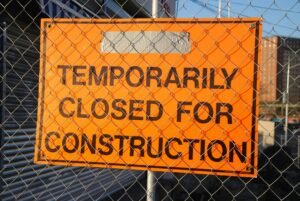Slow responses, extremely unhelpful refusals, the almost entirely blanked out documents, dragged out battles over information that turns out to just not be that incendiary.
It’s nice to know it’s not just here, it’s also the experience of using the FOI Act in Australia.

This article from Australian independent news organisation details it’s latest unsatisfactory response – a twice delayed heavily redacted set of correspondence about the attendance of former prime minister Kevin Rudd, now US ambassador, at the Republican National Convention. It also covers several other rubbish responses.
Meanwhile in responses that both arrived and were helpful…
Mental health care
The costs of private mental health beds across the North West has risen by more than £45m since 2020-21.
Data from the FOI shows Cheshire and Wirral Partnership NHS Foundation Trust had the biggest spike in spending on private mental health care beds. It spent £12.5m more on private mental health care beds in 2023-24 – a rise of almost 54,000% – compared with 2020-21 when it paid just over £20,000.
However, Mersey Care NHS Foundation Trust is bucking the trend by slashing its spend on private mental health care beds in 2023-24 to £20,330 while it laid out £2.5m in 2020-21. Greater Manchester Mental Health Care NHS Foundation Trust spending has jumped from £5.6m in 2020-21 to £14.5m in 2023-24.
More mental health care spending
The cost of bringing in locum psychiatrists on emergency contracts to treat mental health patients in Scotland has soared, according to new figures.
The number of whole-time equivalent NHS psychiatrists has dropped from 781 in March 2019 to 651 in March this year.
The reliance on locums has soared in the same period. The total cost increased from £20.8m in 2019/20 to £34.8m last year according to figures obtained in a joint investigation by The Guardian and the BBC.
Social media spend
The Government spent £160,000 on a social media blitz to warn people they faced a decade in prison if they took part in this summer’s riots, i can reveal.
Data released by the Cabinet Office under Freedom of Information rules show that between 30 July and 12 August, some £160,441 was spent on online anti-riot marketing.
TikTok received the highest spend of £69,205, followed by £48,407 spent on Snapchat. A further £42,829 was spent on mainstream digital news platforms.
Hoax calls
Royal Berkshire Fire and Rescue Service has been called out to more than 400 hoax fire calls over the past five years, new data has revealed.
Hoax calls are deliberate false fire alarms, which can divert emergency services from genuine incidents, putting lives and property at risk.
While the number of malicious calls has fluctuated since 2020, they have contributed to around 90 callouts every year in Berkshire – totalling 426 in the last four years.
Poor incentive
A million pound scheme to entice a new generation of market traders has failed to take hold – after it was revealed just one stall per week is using the new space a year after it opened.
A total of £1.37m of the £23m Towns Fund granted to Barnsley Council from the government was used to improve Goldthorpe’s town centre. This included the demolition of the derelict Horse and Groom pub and the installation of a new town square for events and market stalls.
However, according to a Freedom of Information request, the number of ‘regular stalls’ has dwindled from eight last October to just one last month.
Rich pickings
Sixty of the wealthiest people in the UK collectively contributed more than £3bn a year in income tax, the BBC has learned.
Each of the 60 individuals had an income of at least £50m a year in 2021/22, but many will have earned far more and probably pay large amounts in other taxes too.
The figures, which were compiled by HMRC, have been obtained through Freedom of Information laws and relate to 2021/22, the latest year for which data is available.
That year, the UK had a total income tax receipt of £225bn, with contributions from some 33m taxpayers. The 60 people with incomes of more than £50m made up just 0.0002% of UK taxpayers and together paid 1.4% of the income tax receipt.
Image by Mike Bird on Pexels




